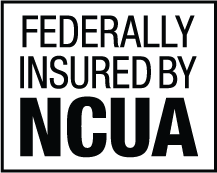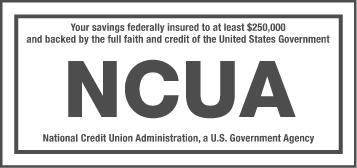
Eight First-Time Home-Buying Mistakes to Avoid
posted on
January 23, 2024
Buying a home for the first time can be quite a daunting process. It’s easy to make mistakes if you don’t have the proper guidance. At SRP Federal Credit Union, we understand the many challenges first-time home buyers face when trying to take that next step in life.
Here are eight mistakes first-time home buyers should strive to avoid when obtaining their first home.
The mistake: Using the same agent as the seller.
How to avoid it: You may be told that you can save money by using one real estate agent for the transaction. However, the reality is that you are much better served by having someone looking out for ONLY your best interests.
The mistake: Buying points without considering how long you will stay in the home.
How to avoid it: When you buy points on a mortgage, you lower the interest rate on the loan by providing more money up-front. This certainly makes sense if you are planning on staying in the property long-term and will save a large amount of money by paying less interest over that time frame. However, if you plan on moving within a few years or are buying the home with the idea of selling it relatively quickly, it probably doesn’t make much sense to buy points.
The mistake: Using an adjustable rate mortgage to buy before you are ready.
How to avoid it: One of the reasons for the housing crisis of the late 2000’s and early 2010’s was that homebuyers were being encouraged to buy homes they couldn’t afford using a low initial interest rate that they could theoretically renegotiate as the value of the home increased. The problem came when many of those homes didn’t increase in value. Gambling that you will be able to refinance a mortgage or sell the home before the rate increases is not only risky, but puts you in a very stressful position as a homeowner.
The mistake: Including closing costs in the loan.
How to avoid it: The lender may provide you the option of including the closing costs in the mortgage loan if you are not able to meet this expense at the time of closing. However, financing these costs means paying more since you will have to pay interest too. You are better off saving up for closing costs ahead of time since this will cost you much less in the long-run.
The mistake: Being unaware of service contracts for your home.
How to avoid it: Hot water heater broken? Before you shell out the cash to have it fixed, check the paperwork to see if repairs are covered in a service contract included in the loan agreement. You don’t want to pay out of pocket for something that is already covered.
The mistake: Thinking a passing home inspection grade means no worries.
How to avoid it: The best home inspectors will give you notes on possible future trouble areas even if they are working fine right now. However, this isn’t always the case. Don’t assume that a home inspector signing off on a property means that there won’t be any major expenses in the near future. Assuming that repair costs will spring up eventually and preparing accordingly is the best practice.
The mistake: Not planning to have HOA fees.
How to avoid it: With all the costs popping up as you move through the buying process, it can be easy to forget about Homeowners Association Fees. Unless you have money to burn, a successful home buying experience is going to involve understanding first what you can afford and then the total monthly cost of the property you are looking at—including potential increases.
The mistake: Failing to plan for potential increases in insurance or property taxes.
How to avoid it: With a fixed-rate mortgage, you might think your mortgage expenses are locked-in. But think for a moment of parts of the country hit by natural disasters in the past few years. Many homeowners in these areas have seen dramatic increases in their homeowners’ insurance as a result. Hopefully you won’t be hit by any cataclysms, but even if the odds of this are low, it’s still wise to have some money set aside in a housing fund to cover increased costs.
Visit SRP for Your Home Loans
If you are in the market for your new home, SRP Federal Credit Union has been making loans for over 50 years, so we need to talk if you're considering buying a home. With competitive rates, flexible terms, and unparalleled service, you'll be in the home of your dreams in no time.
We are eager to serve you at one of our many convenient locations. Don’t hesitate to get in touch with us today.
This article is for informational purposes only. All loans subject to approval and rate may vary depending on individual’s credit history and other factors. Refinancing restrictions apply. All Credit Union loan programs, rates, terms, and conditions are subject to change at any time without notice. Membership required. SRP is federally insured by NCUA. NMLS #612441.









